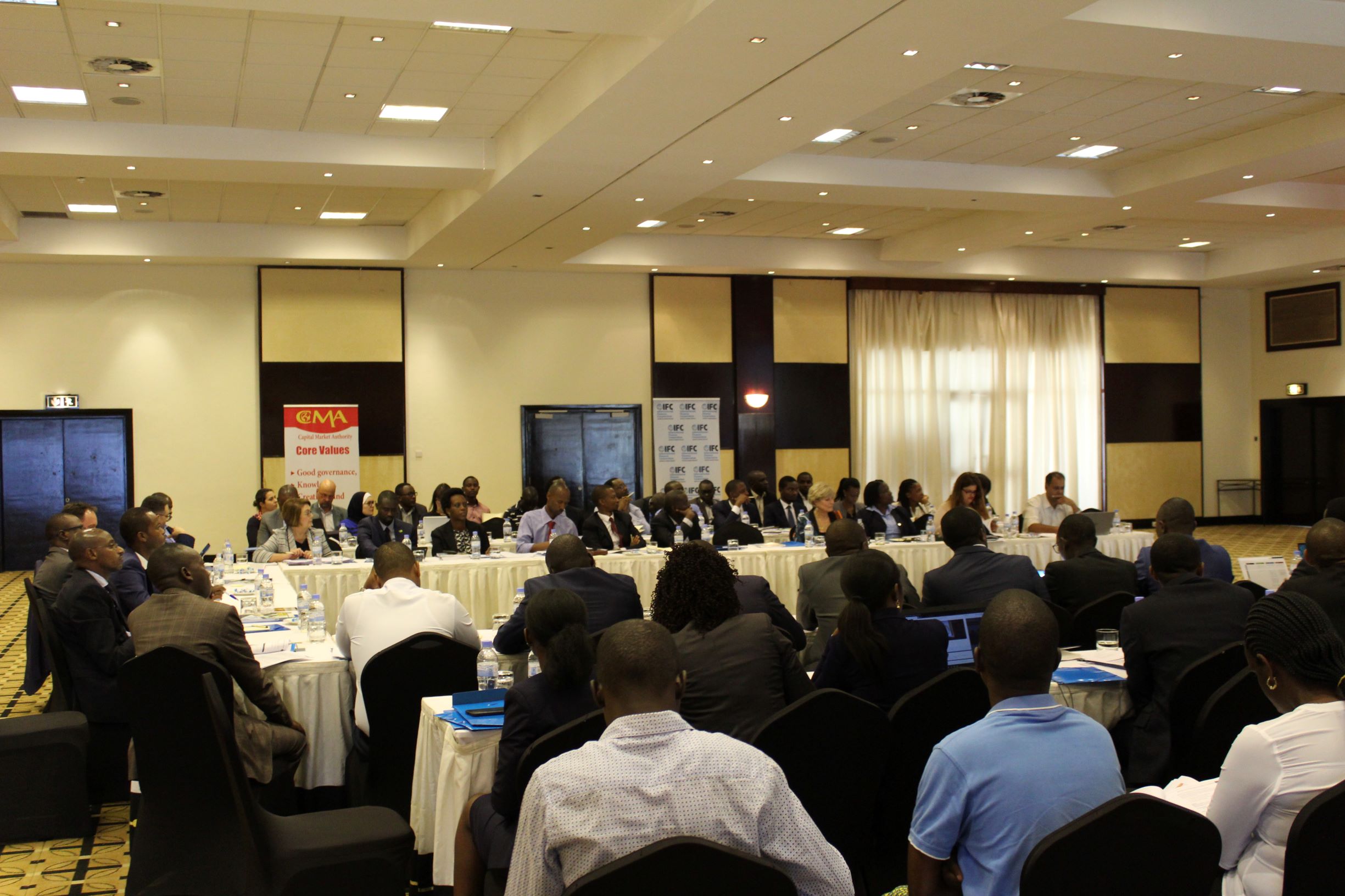Kigali, Rwanda, February 26, 2019—IFC, a member of the World Bank Group, in partnership with the UN Sustainable Stock Exchange, Rwanda Stock Exchange and Capital Market Authority in Rwanda today advanced an effort to improve integrated reporting and disclosure practices and strengthen environmental, social, and governance (ESG) disclosure and reporting requirements for listed companies.
At a partnership workshop led by IFC today companies were exposed to global practices on annual reporting and disclosure. The workshop raised awareness on ESG standards of listed companies in Rwanda, with the goal of helping build investor trust, attract capital, and grow strong capital markets.
“Effective capital markets require investor trust,” said IFC Country Manager Manuel Moses. “Through our partnership with the UN Sustainable Stock Exchanges Initiative, CMA Rwanda and RSE, we seek to build confidence and greater transparency and reporting. Ultimately, this will help responsible companies attract investors and reduce the cost of capital.”
Lack of consistent and easily accessible information on companies’ ESG performance is an impediment to increasing the allocation of capital to emerging markets. Adhering to high standards of disclosure and transparency can mitigate perceived risks around weaker corporate governance and heightened social and environmental risks.
Eric Bundugu, Ag. Executive Director of the Capital Market Authority in Rwanda, said: "The Rwandan Capital Market Authority and the Rwanda Stock Exchange are increasingly active in promoting sustainable access to finance through the capital markets. Availing relevant technical assistance to implement sustainable finance mechanisms is one of the ways to attain such objective. We are pleased today to announce the strengthening of our ties with IFC and UN SSE, with the aim of improving assistance to listed companies and other Rwandan private/public sector companies with a potential to raise long-term funding through the capital markets, so that we can reap the rewards of sustainable finance."
Market regulators and stock exchanges in Africa are uniquely positioned to advance greater transparency and disclosure to inform investor decisions. One way is by establishing best-practice for ESG disclosure by listed companies, for well-functioning markets.
“IFC and SSE have a collaboration agreement on disclosure and transparency program to help local stock exchanges formulate ESG disclosure rules and enhance low-risk emerging markets investments. The program draws from IFC’s recently released Disclosure and Transparency Toolkit and UN Model ESG Reporting Guidelines. Since its release in January 2018, it has been used to develop market and regulatory guidance in Kazakhstan, Kenya, Nigeria, Peru, Georgia and the Philippines,” said Anthony Miller, Coordinator, UN Sustainable Stock Exchanges Initiative.
About IFC
IFC—a sister organization of the World Bank and member of the World Bank Group—is the largest global development institution focused on the private sector in emerging markets. We work with more than 2,000 businesses worldwide, using our capital, expertise, and influence to create markets and opportunities in the toughest areas of the world. In fiscal year 2018, we delivered more than $23 billion in long-term financing for developing countries, leveraging the power of the private sector to end extreme poverty and boost shared prosperity. For more information, visit www.ifc.org
About the UN Sustainable Stock Exchanges Initiative
UN Sustainable Stock Exchanges (SSE) Initiative, launched in 2009 by the UN Secretary General, is a UN Partnership Programme of the UN Conference on Trade and Development (UNCTAD), the UN Global Compact, the UN Environment Program Finance Initiative (UNEP FI), and the Principles for Responsible Investment (PRI). The SSE convenes stock exchanges who join by signing a voluntary public commitment and it currently has 78 Partner Exchanges worldwide. It provides Model Guidance on ESG disclosure for stock exchanges to help with the preparation of ESG reporting guidelines. The SSE has three inter-related pillars of activity: research, consensus building and technical assistance.
About CMA Rwanda
Capital Market Authority (CMA) is a Rwandan public institution established by the Law No.23 /2017 of 31/05/2017 responsible for developing and regulating the capital markets industry, commodities exchange and related contracts, collective investment schemes and warehouse receipts system. The CMA derives its mandates from the Law N°11/2011 of 18/05/2011 establishing the CMA, determining its mission, powers, organization, and functioning. The CMA continues to maintain a conducive environment to enabling Rwanda’s economy to access long-term funding through the capital markets as well as ensuring investor protection. For more information, visit www.cma.rw


